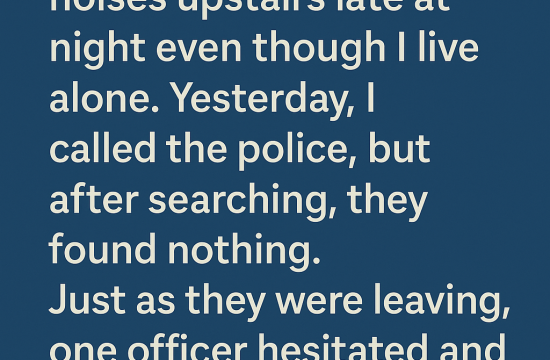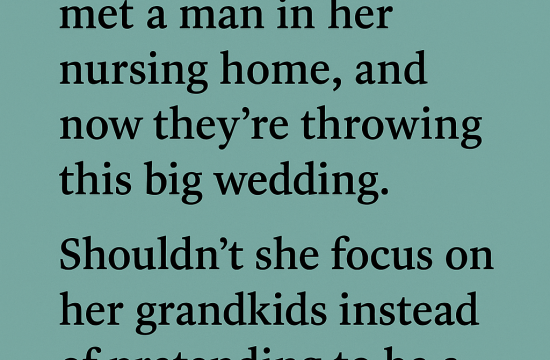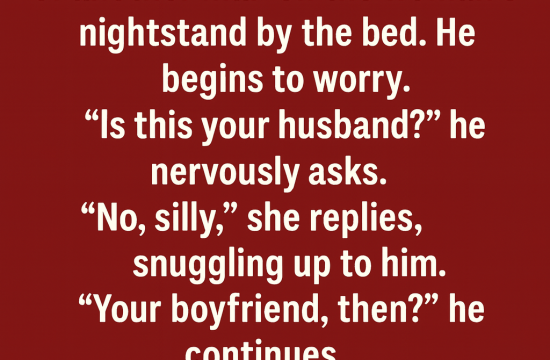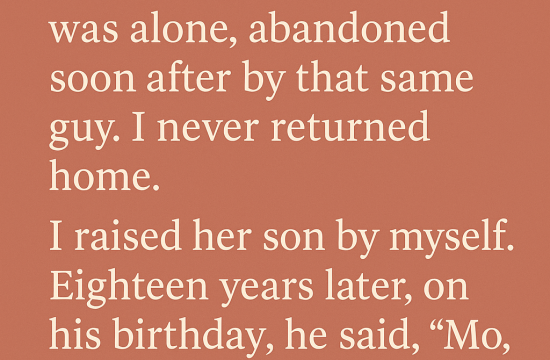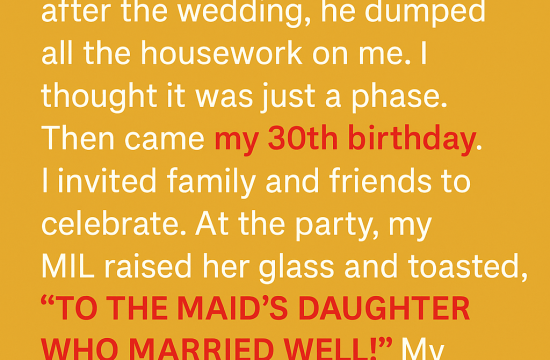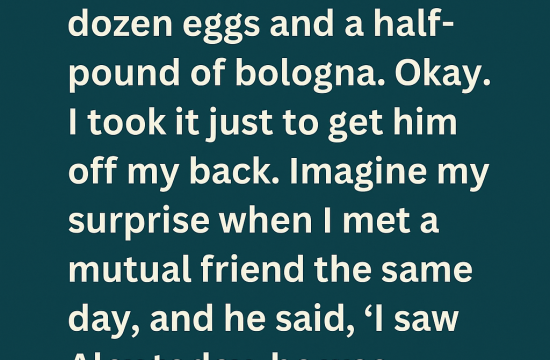I remarried. My new wife had a daughter. For eleven years, I tried to build bridges with her. I gave her everything I could—paid for the best private schools, drove her to dentist appointments, helped with assignments, clapped the loudest at her school performances. I never wanted to replace her dad, only to be someone reliable.
But she still hated me.
Her name was Livia. Smart, headstrong—just like her mother. But her walls were always high, especially around me. I thought time might soften her, that one day she’d mutter a simple “thank you” or maybe, “you’re not so bad.” That moment never came.
Until something unexpected happened.
On her eighteenth birthday, Livia kept her promise. She left. No party, no cake. Just a text to her mom: “I’m gone. Don’t worry.” No forwarding address.
Ana, my wife, cried all night. I sat beside her, silent, just holding her hand and refilling her water. I was hurting too. The house felt emptier than ever.
A few months later, at 1:30 a.m., Ana’s phone rang. Livia. Crying. Her roommate had stolen her things and locked her out. Ana panicked. I grabbed the car keys.
We drove across town and found her on the curb—shivering, mascara streaking her cheeks, clutching a duffel bag. She hugged Ana, but barely looked at me. At home, she showered, sipped tea, and slipped into the guest room. By morning, she was gone again.
But this time, it felt different. Not hate. Fear. Maybe shame.
A week later, I received an email. Subject line: “Thank You.”
It was only a few lines. She apologized for calling so late, thanked me for showing up. Ended with: “I still don’t know how to feel about you. But I notice your concern. And that counts.”
I kept that email open for days. Didn’t reply. Not because I didn’t want to—but because sometimes silence speaks enough.
Then Ana fell ill. Pneumonia. The fever wouldn’t break.
When Livia found out, she showed up at the hospital with soup, vitamins, and a worried face. She stayed for hours, stroking her mother’s hair, whispering, “You’re all I have, Mama. Sorry I was a brat.”
For the first time in days, Ana laughed.
The next morning, I found a note from Livia on the counter: “Getting your meds. Don’t worry. I’m not running.”
That one line changed everything.
She began visiting more. Sometimes overnight. Sometimes just to drop off groceries. She still rarely spoke to me, but the air wasn’t cold anymore—it was neutral. And that felt like victory.
One night, while I was chopping carrots, she walked into the kitchen.
“You cook a lot,” she said.
I nearly dropped the knife. “Yeah. I always liked it.”
She glanced at me, then down at the counter. “I remember when I was twelve and had that surgery. You made those weird pancake shapes.”
I smiled. “You only ate the star-shaped ones.”
She grinned. “Still my favorite.”
It was small. But it meant everything.
Weeks later, she accepted Ana’s suggestion to stay in the guest room again. This time, she didn’t run.
Slowly, we became a household. She helped with dishes, took Ana to appointments when I couldn’t, debated with me about which Stranger Things season was best. One Sunday, she asked for my lasagna recipe. We cooked together—burned sauce, spilled cheese, laughed through the mess.
After dinner, she whispered, “I never gave you a chance, did I?”
I shrugged. “Didn’t matter. I was always going to show up.”
Her eyes softened. “My dad leaving made me furious. I was mad at Mom too for moving on. You were just… there.”
“I understand,” I said. And I truly did.
That summer, she threw a birthday party for Ana—cake, decorations, even a slideshow. One photo showed me holding her school project when she was thirteen.
The caption: “The guy who stayed.”
Ana cried. Quietly, so did I.
Months later, my father died. We had been estranged for years. To my surprise, he left me his old cottage. At first, I wanted to sell it—too many ghosts.
But Livia overheard. “Don’t sell it,” she said. “Fix it. Together.”
I blinked. “You want to help me with the cabin?”
She nodded. “You built bridges for eleven years. Maybe I should build one too.”
And so we did.
Spring weekends were spent painting, repairing, laughing at mice in the cupboards. By summer, it looked alive again. We’d sit on the porch at sunset—me with wine, her with tea.
One evening, she said quietly, “I never told you, but… I’m glad you married Mom. She’s better with you. I think I am too.”
That night, I slept better than I had in years.
Now she’s moved back in, into her own space. She calls often, brings her boyfriend to dinner, and once handed me a Father’s Day card.
It read: “To the man who loved me every day, even when he didn’t have to.”
I framed it.
Because sometimes love takes time. Sometimes it takes patience, grace—and a good plate of lasagna.
Every tear. Every silence. Every awkward pause.
It was worth it.
All of it.
Closing Thought
Bridges take time to build. Some take years. But once finished, they’re stronger than you could ever imagine.




